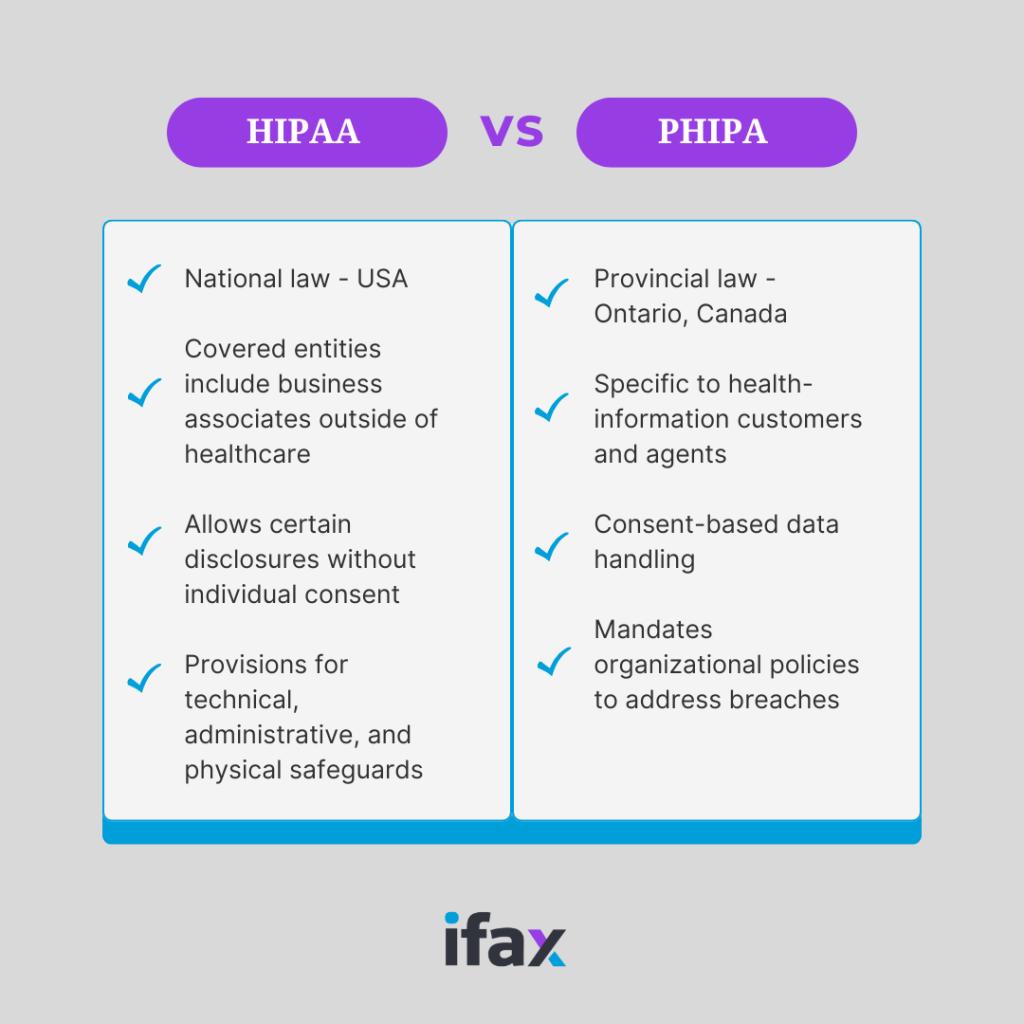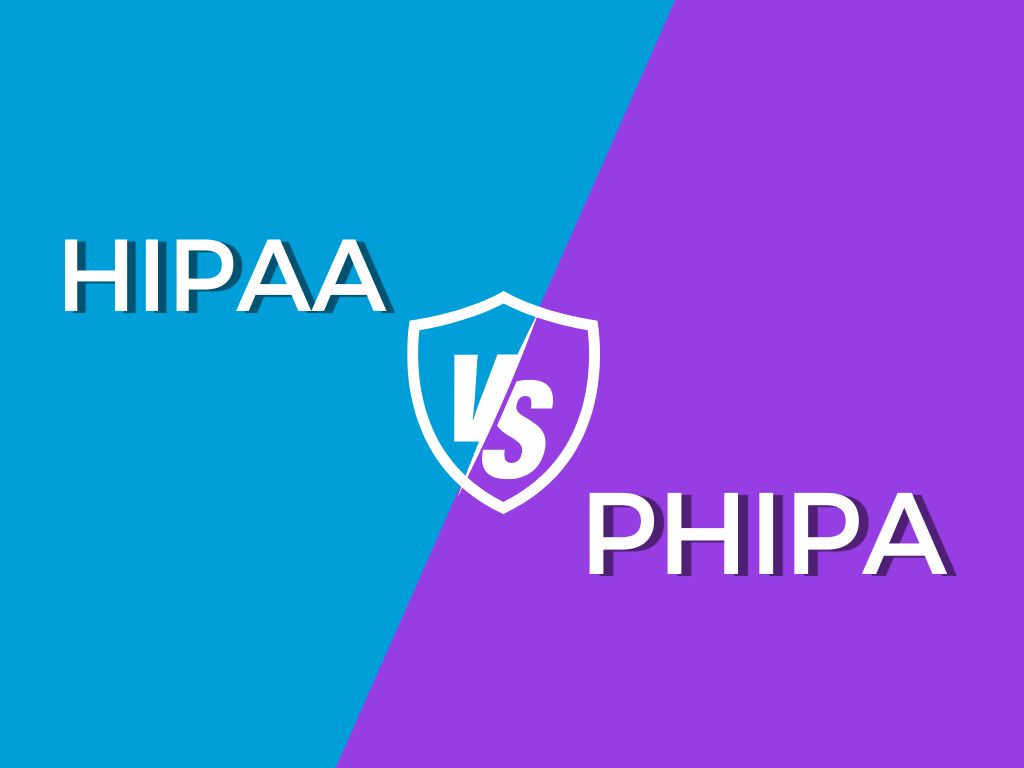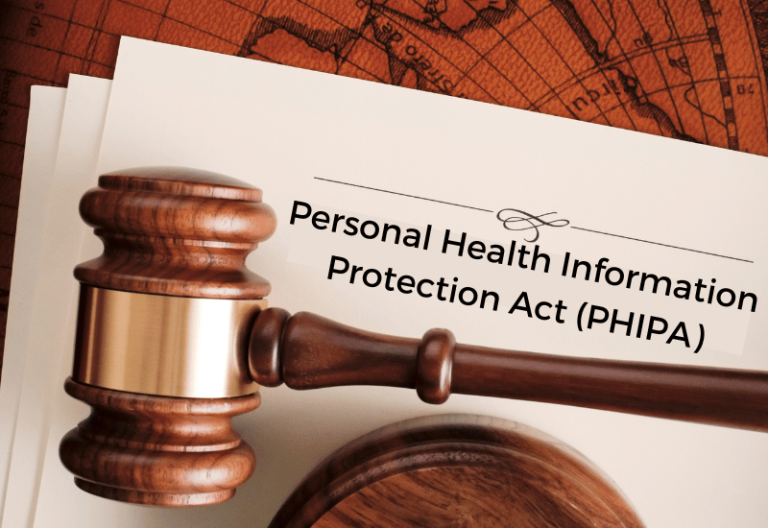At its core, PHIPA and HIPAA are regulations aimed at safeguarding sensitive patient health information (PHI). However, while they serve similar purposes, they differ in scope, application, and compliance requirements. Keep reading to learn the difference between HIPAA and PHIPA.
Table of Contents
HIPAA and PHIPA Comparison
The healthcare industry relies heavily on regulations to ensure patient information’s confidentiality, integrity, and security. Two prominent regulations are often compared due to their shared focus on protecting personal health information (PHI): PHIPA (Personal Health Information Protection Act) in Canada and HIPAA (Health Insurance Portability and Accountability Act) in the United States.
PHIPA was enacted in 2004 in Ontario, Canada, to govern PHI’s collection, use, and disclosure. It covers healthcare providers, called health information custodians (HICs), and ensures patients control their healthcare data.
HIPAA was signed into law in 1996 and governs healthcare entities across the United States. These entities include healthcare providers, health plans, clearinghouses, and their business associates.

PHIPA vs HIPAA Scope and Application
PHIPA is a provincial law that applies only to the province of Ontario but heavily influences broader Canadian health practices. On the other hand, HIPAA applies across the United States and governs healthcare providers in the entire country.
PHIPA focuses on health information customers and their agents. Meanwhile, HIPAA includes covered entities and their business associates and extends to non-healthcare organizations that handle PHI. Its scope was further extended in 2009 by enacting the Health Information Technology for Economic and Clinical Health (HITECH) Act.
PHIPA emphasizes consent-based data handling, requiring patient approval for most disclosures. HIPAA allows certain uses and disclosures without consent, particularly for treatment, payment, and healthcare operations. Healthcare providers can share PHI among themselves to facilitate patient care and for healthcare operations like training programs, assessment, and administrative tasks.
Furthermore, HIPAA allows the use and disclosure of PHI without individual authorization for various public interest and benefit activities such as research and when required by law.
However, HIPAA requires that entities adhere to the “minimum necessary” standard when disclosing PHI without patient consent. Only the minimum amount of PHI required to accomplish the intended purpose can be disclosed.

HIPAA vs PHIPA Compliance Requirements
HIPAA compliance requires administrative, physical, and technical safeguards. It enforces risk assessments, encryption, and secure data storage. Non-compliance can result in significant financial penalties and reputational damage.
Meanwhile, PHIPA mandates organizational policies to address privacy breaches. It requires prompt reporting of breaches to affected individuals and the Information and Privacy Commissioner of Ontario. It also focuses heavily on obtaining informed consent and managing patient access to their own records.
Impact of HIPAA on Healthcare Providers
Since its launch, HIPAA profoundly impacted US healthcare providers, influencing every aspect of their practices.
- Operations: Healthcare providers must use electronic health record (EHR) systems with robust security to ensure safe data handling. You can’t use any application without a signed business associate agreement (BAA) and the required security features.
- Training: Staff must regularly train on the latest data privacy and security protocols. They must be aware of the cybersecurity risks that can potentially harm patient data and the penalties for breaching protocol.
- Financial implications: Non-compliance can lead to fines ranging from $100 to $50,000 per violation, capped annually at $1.5 million. With these heavy fines, covered entities can’t afford to disregard HIPAA mandates.
- Patient trust: HIPAA-compliant providers enjoy higher patient confidence since patients can trust these providers to protect their data. This results in customer loyalty and repeat business.

Impact of PHIPA on Healthcare Providers
Like HIPAA, PHIPA continues to shape the operations of Canada-based healthcare providers by promoting transparency and accountability.
- Consent Management: Healthcare providers must develop systems to document and manage patient consent. It’s all about giving patients control over what they want to share.
- Responding to breaches: If something goes wrong, providers must act fast and notify patients and the Ontario Information and Privacy Commissioner of any affected data. You can’t let any security breach be kept a secret, no matter how small.
- Patient empowerment: Patients have a right to access and correct their records. This fosters trust in the healthcare system and builds accountability that providers will always maintain accurate records.
- Regulatory oversight: The Ontario Information and Privacy Commissioner is actively involved in ensuring compliance and addressing any issues that arise. This layer of oversight keeps everyone on their toes and ensures healthcare providers maintain high data privacy and security standards.

Meet PHIPA and HIPAA Compliance Requirements With iFax
Understanding the differences between PHIPA and HIPAA is crucial for healthcare providers operating across borders or within jurisdictions influenced by these regulations. While both prioritize PHI protection, their unique frameworks demand tailored compliance strategies. Navigating these complexities ensures providers can maintain trust, avoid penalties, and deliver secure, patient-centered care.
One way to remain compliant is to use PHIPA-compliant fax software. iFax implements strict security measures that meet the stringent requirements of PHIPA and HIPAA.
You can also get a signed BAA that assures you of iFax’s data security and privacy commitment. Furthermore, you can access detailed audit logs and review them for any suspicious access. This is also one of the HIPAA and PHIPA requirements for data security.
With iFax, you don’t have to worry that you’ll break any regulations or, worse, jeopardize your patient information.
Sign up for a free trial today and experience the benefits of using iFax.






